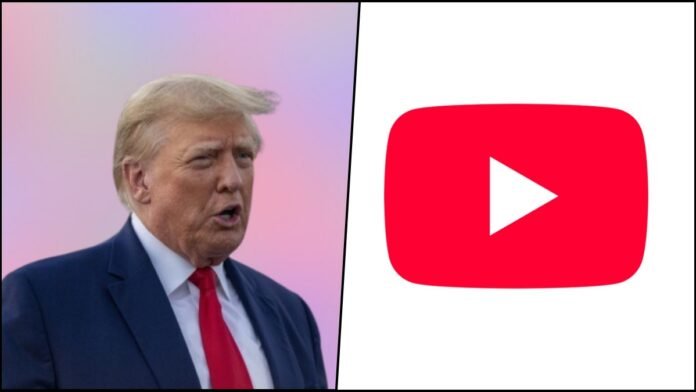
Key Points
- $24.5 million settlement agreed between YouTube and President Trump to resolve 2021 lawsuit over account suspension
- $22 million designated for White House State Ballroom construction through Trust for the National Mall nonprofit
- $2.5 million allocated to other plaintiffs including American Conservative Union and conservative personalities
- Final tech settlement completes trilogy of agreements, following Meta ($25 million) and X ($10 million) payouts
- No admission of wrongdoing by YouTube, settlement reached solely to avoid litigation costs
- Account reinstated in 2023 ahead of 2024 presidential election cycle after two-year suspension
Washington: YouTube has agreed to pay President Donald Trump $24.5 million to settle a lawsuit stemming from his account suspension following the January 6, 2021, Capitol attack, according to court filings submitted Monday, September 29, 2025. This settlement makes YouTube the final major social media platform to resolve legal disputes with Trump over post-Capitol riot account suspensions.
The agreement represents a relatively modest sum for YouTube, which reported advertising revenues of nearly $9.8 billion in the second quarter of 2025 alone. Parent company Alphabet’s online video platform generated over $36 billion in ad sales revenue for 2024, demonstrating the financial insignificance of the settlement amount.
White House Ballroom Project Receives Major Funding
Under the settlement terms, $22 million will be directed toward Trump’s ambitious White House construction project through the Trust for the National Mall, a nonprofit organization managing a $200 million initiative to build a new State Ballroom at the White House. The remaining $2.5 million will be distributed among other lawsuit plaintiffs, including the American Conservative Union, author Naomi Wolf, and several conservative content creators.
Trump attorney John P. Coale expressed satisfaction with the resolution, telling Al Jazeera that the three collective cases against major tech platforms garnered $60 million total. “We believe we influenced behavior,” Coale remarked, highlighting the broader impact beyond monetary compensation.
Complete Tech Industry Capitulation Pattern
This YouTube settlement completes a trilogy of major social media platform agreements with Trump following his return to the presidency. In January 2025, Meta Platforms agreed to pay $25 million to settle similar litigation, with $22 million designated for Trump’s future presidential library and $3 million covering legal fees. Subsequently, in February 2025, X (formerly Twitter) reached an approximately $10 million settlement.
The pattern of settlements reflects a broader Silicon Valley recalibration toward the Trump administration, with tech leaders including Google’s Sundar Pichai, Meta’s Mark Zuckerberg, and X’s Elon Musk prominently attending Trump’s January 2025 inauguration ceremony. This represents a dramatic shift from the adversarial relationship that characterized Trump’s previous presidency.
Constitutional Free Speech Claims Drive Litigation
Trump’s original July 2021 lawsuit alleged that YouTube violated his constitutional right to free speech by indefinitely banning him from the platform. The legal challenge claimed that major tech companies displayed systematic political bias, unjustly silencing conservative voices in the aftermath of the Capitol insurrection.
YouTube suspended Trump’s account citing policy violations for inciting violence, specifically referencing an uploaded video that allegedly violated platform guidelines. The company maintained its position that Trump’s continued presence posed risks of inciting further unrest in Washington, D.C..
Account Restoration and Content Moderation Changes
YouTube reinstated Trump’s channel in March 2023, more than two years after the initial suspension, citing the importance of allowing voters to “hear equally from major national candidates in the run-up to an election”. This restoration preceded similar moves by other platforms as the 2024 election cycle approached.
The settlement coincides with broader changes in YouTube’s content moderation policies. Last week, the platform announced plans to restore several channels previously banned for spreading COVID-19 and 2020 election misinformation. YouTube justified this decision by stating it “values conservative voices on its platform and acknowledges that these creators have significant reach and contribute importantly to civic discourse”.
Academic Concerns About Selective Enforcement
Dr. Timothy Kos, a doctoral candidate at the University of Sydney’s School of Media and Communications, warned that YouTube’s settlement undermines expectations for consistent content moderation across social media platforms. “Unfortunately, as the rules-based order diminishes, we cannot anticipate consistent treatment from those seeking to benefit from this administration,” Kos told Al Jazeera.
Democratic senators, including Elizabeth Warren, previously expressed concerns about potential “quid-pro-quo arrangements” between tech companies and the Trump administration, suggesting such settlements might help companies avoid accountability for federal competition, consumer protection, and labor violations.
Trump celebrated the settlement on Truth Social, declaring it “MASSIVE proof that Big Tech censorship has been defeated”. The agreement explicitly states it “shall not constitute an admission of liability or fault” by YouTube or its associated entities.






















































